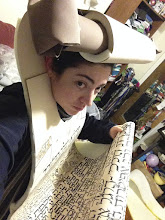Sure, I enjoyed the movie; it made me laugh, it told a story that captured my attention, and it painted vivid portraits of its setting (Depression-era Mississippi) and of distinctive characters (Charles Durning stands out as the cavalier Governor “Pappy” O’Daniel). Even George Clooney’s portrayal of Ulysses, who grated dangerously on my nerves for the first few minutes, earned my favor by the end.
At the film’s conclusion, though, I found myself more frustrated than satisfied by its ambiguities. Who was chasing our heroes: the law or the Devil? What made Clooney’s character so vastly different – in his accent, his education, and his superstitions – from his contemporaries? And how could his wife be so obdurate as to demand that he fish out her wedding ring from the bottom of a lake?
Perhaps I’d have been more forgiving had I reviewed The Odyssey at the outset; perhaps I hadn’t seen enough Coen Brothers movies to know what I was getting into; perhaps the backdrop of chain gangs and lynch mobs put me in the wrong mindset for a quirky caper flick. But when Clooney conned his cohorts into setting out on his quest, he brought me along for the ride. And after blindly following him everywhere he led me, I still can’t make heads or tails of where we’ve gone.

No comments:
Post a Comment